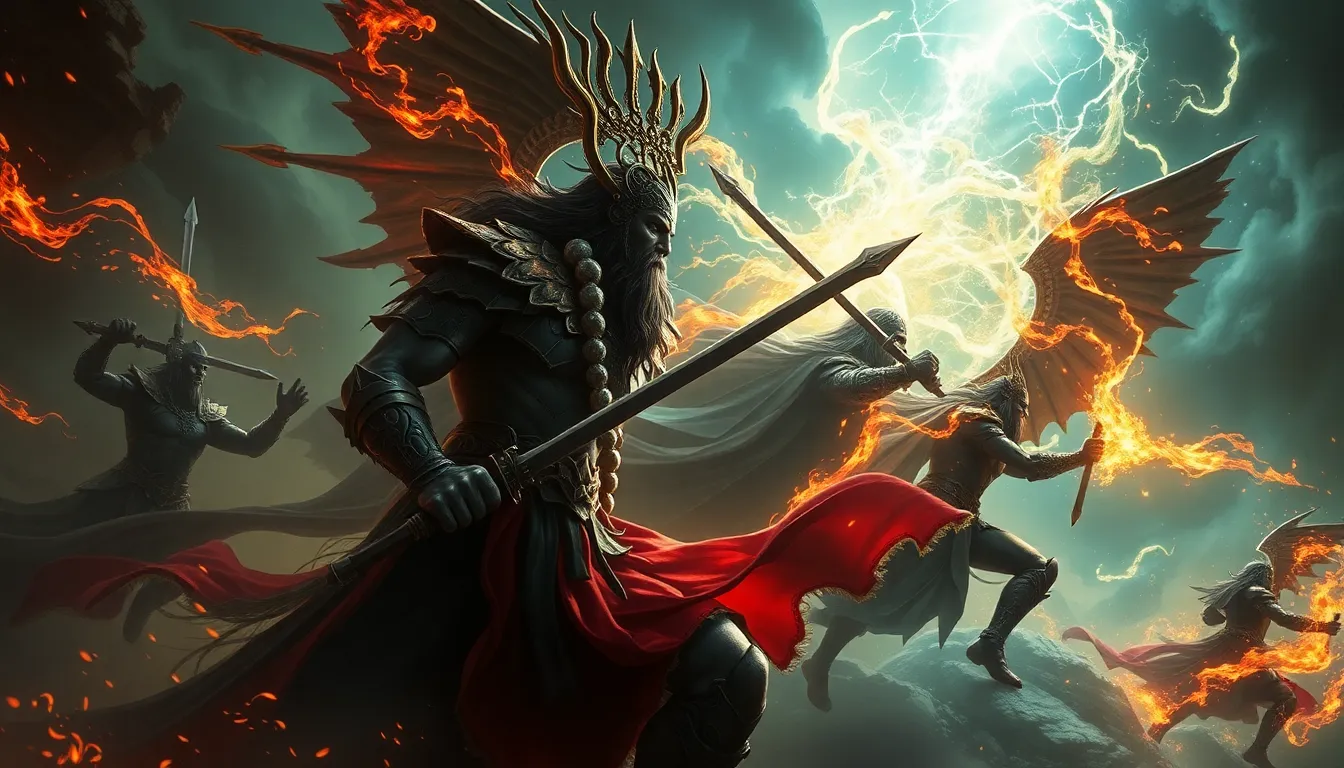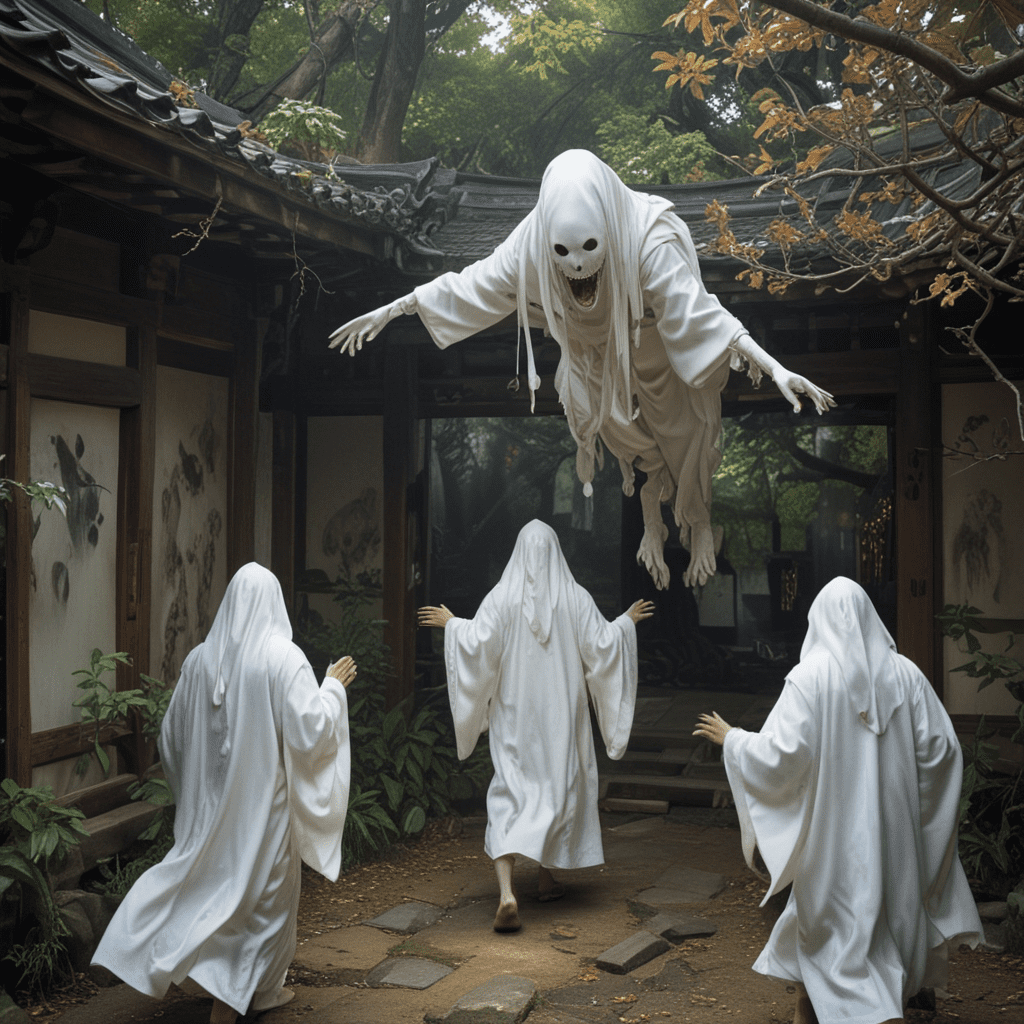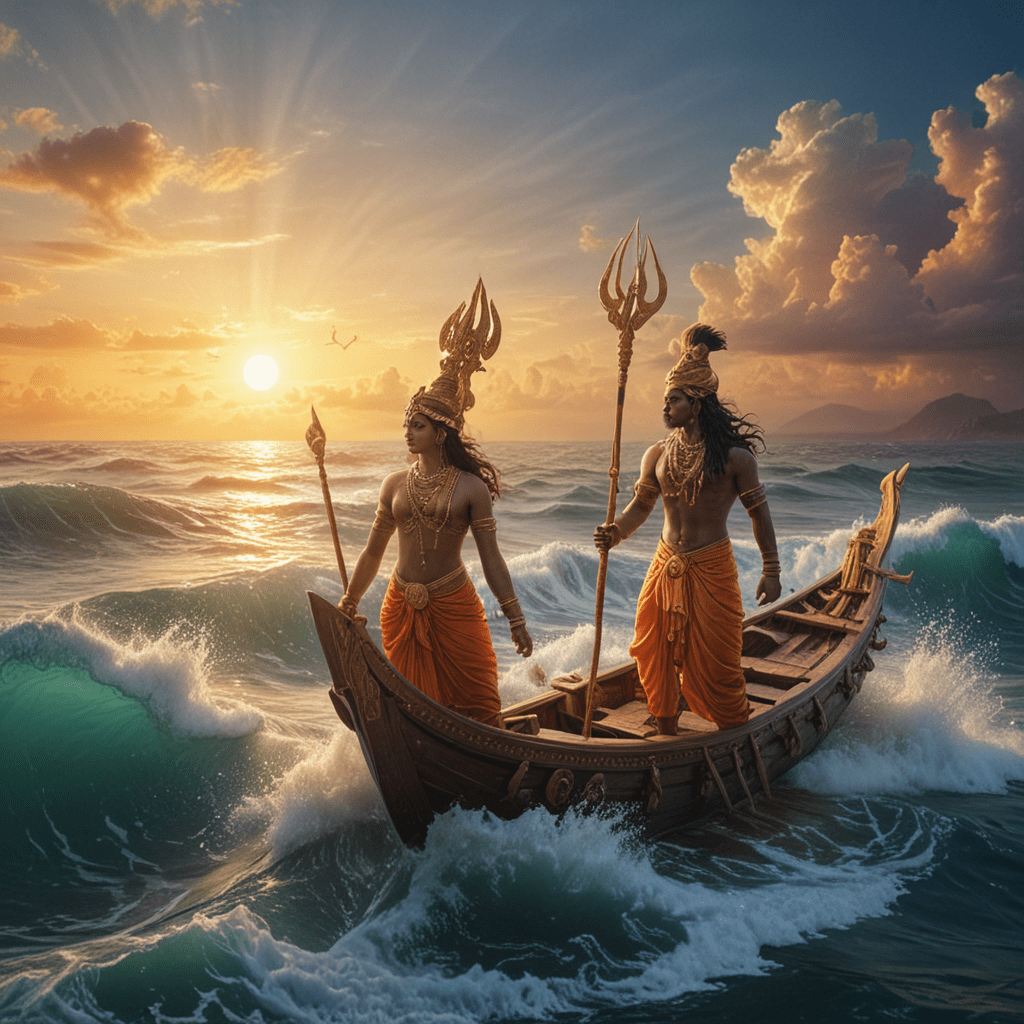Divine Warfare: The Greatest Battles of the Gods!
I. Introduction
Divine warfare refers to the epic conflicts and battles that occur among deities in various mythologies around the world. These extraordinary confrontations not only showcase the power and might of gods but also serve as allegories for human struggles, values, and the cosmic order. Throughout history, the significance of divine battles has permeated cultures, offering insights into the societies that revered these mythologies.
This article will explore the concept of divine warfare, focusing on notable pantheons and their epic conflicts, the role of heroes in these battles, and the symbolism behind these mythological narratives. We will also examine the consequences of these divine conflicts and their modern interpretations, culminating in a discussion of the psychological and philosophical implications of these ancient tales.
II. The Concept of Divine Warfare in Mythology
The historical context of divine warfare varies across cultures, shaped by unique beliefs and values. In many traditions, gods are seen not only as creators but also as active participants in the lives of humans, often influencing their destinies through battles and conflicts.
Common themes among divine battles include:
- Good vs. Evil
- Order vs. Chaos
- Fate vs. Free Will
These battles often reflect the moral dilemmas and societal concerns of their time, serving as powerful metaphors for human existence.
III. Major Pantheons and Their Epic Conflicts
A. Greek Pantheon
1. The Titanomachy: Titans vs. Olympians
The Titanomachy was a monumental war between the Titans, led by Cronus, and the Olympian gods, led by Zeus. This conflict lasted for ten years and ended with the defeat of the Titans, establishing the Olympians as the new rulers of the cosmos.
2. The Gigantomachy: Gods vs. Giants
The Gigantomachy was another significant battle where the Olympian gods fought against the Giants, offspring of the Earth. This struggle symbolized the battle for supremacy and order in the universe and ended in the Giants’ defeat, reinforcing the power of the Olympians.
B. Norse Pantheon
1. Ragnarök: The End Times Battle
Ragnarök, often referred to as the “Twilight of the Gods,” is a series of events, including a great battle that leads to the death of many gods, including Odin and Thor. This cataclysmic conflict represents the inevitable destruction and rebirth of the world.
2. Conflicts among the Aesir and Vanir
The Aesir and Vanir are two groups of gods in Norse mythology who engaged in a bitter war that ultimately ended in a truce and intermarriage, symbolizing the unification of different aspects of divinity.
C. Hindu Pantheon
1. The Kurukshetra War: Divine and Mortal Interactions
The Kurukshetra War, depicted in the Mahabharata, is a legendary conflict between the Pandavas and Kauravas, with divine interventions from gods like Krishna. This epic illustrates the complexities of dharma (righteousness) and the consequences of war.
2. The battle between devas and asuras
The ongoing struggle between devas (gods) and asuras (demons) in Hindu mythology embodies the eternal fight between good and evil, reflecting the moral and ethical dilemmas faced by humanity.
IV. The Role of Heroes in Divine Conflicts
Throughout these divine battles, human champions often emerge, serving as crucial players in the conflict. These heroes, blessed or cursed by the gods, exemplify the intertwining of divine and mortal fates.
Some notable heroes include:
- Heracles: Known for his strength and heroic feats, he often intervened in divine conflicts, aiding the gods.
- Achilles: A central figure in the Trojan War, his wrath and fate were deeply intertwined with the will of the gods.
- Arjuna: A key warrior in the Kurukshetra War, guided by Krishna, he embodies the moral dilemmas of duty and righteousness.
These heroes not only represent the ideals of their cultures but also highlight the complex relationships between mortals and the divine.
V. Symbolism and Allegory in Divine Warfare
Divine battles serve as profound symbols that resonate with human experience. They often represent:
- The struggle between good and evil
- The chaotic nature of existence
- The quest for order and meaning in life
These allegories reflect societal values, fears, and aspirations, offering a lens through which to understand the human condition.
VI. The Aftermath of Divine Warfare
The consequences of divine warfare extend beyond the battlefield, impacting both gods and mortals. Major outcomes include:
- Shifts in power dynamics among deities
- Changes in worship and cultural practices
- Evolution of myths and their interpretations over time
These aftermaths often reshape the mythology itself, leading to new narratives and beliefs.
VII. Comparative Analysis of Divine Battles
A comparative analysis of divine battles across pantheons reveals both similarities and differences. While many cultures share themes of good vs. evil and chaos vs. order, the specific narratives and characters are influenced by geography and cultural heritage.
Key observations include:
- The portrayal of gods varies, with some seen as benevolent and others as capricious.
- The contexts of battles often reflect historical events or societal issues relevant to the culture.
- Lessons from these conflicts often emphasize moral values and the consequences of human actions.
VIII. Modern Interpretations and Adaptations
In contemporary literature and media, divine warfare has found new life. From films and television series to books and video games, these ancient conflicts are reimagined for modern audiences. Examples include:
- Movies like “Clash of the Titans” and Marvel’s “Thor” explore these mythological battles.
- Literary adaptations, such as Neil Gaiman’s “American Gods,” bring ancient tales into contemporary contexts.
- Video games like “God of War” allow players to engage directly with mythological narratives.
This resurgence in popularity highlights society’s enduring fascination with mythology and its relevance to modern life.
IX. The Psychological and Philosophical Implications
The concept of divine conflict raises profound psychological and philosophical questions. It invites exploration into:
- The nature of good and evil
- The role of fate and free will in human lives
- The search for meaning amidst chaos and suffering
These themes resonate deeply with the human psyche, prompting reflections on our own struggles and the larger existential questions of life.




